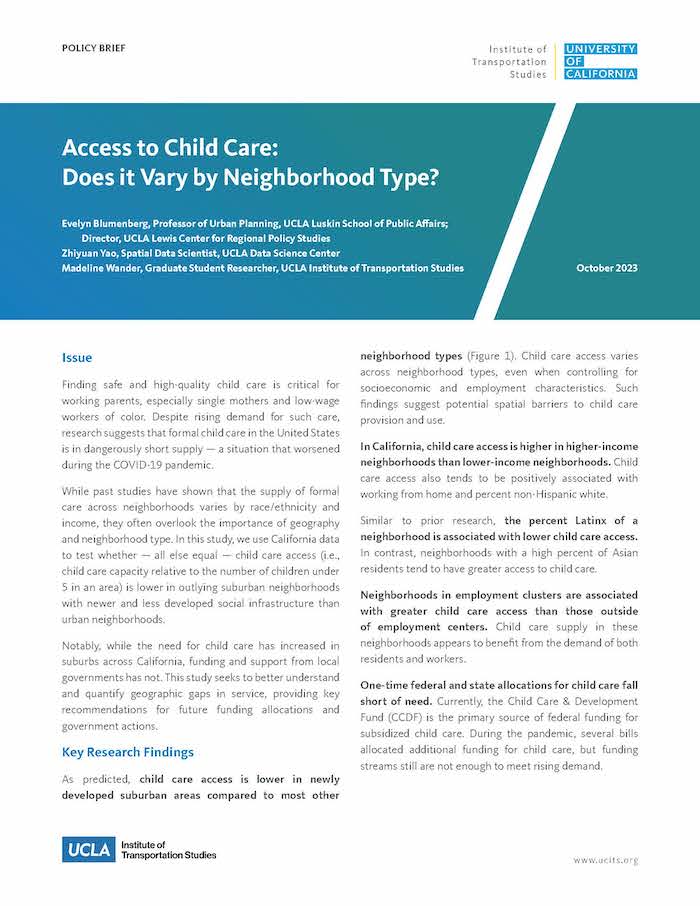Date: October 12, 2023
Author(s): Evelyn Blumenberg, Zhiyuan Yao, Madeline Wander
Abstract
Finding safe and high-quality child care is critical for working parents, especially single mothers and low-wage workers of color. Despite rising demand for such care, research suggests that formal child care in the United States is in dangerously short supply — a situation that worsened during the COVID-19 pandemic. While past studies have shown that the supply of formal care across neighborhoods varies by race/ethnicity and income, they often overlook the importance of geography and neighborhood type.
About the Project
The COVID-19 pandemic has laid bare the necessity of childcare as essential infrastructure. Without access to affordable childcare, working outside of the home is difficult or, in many cases, impossible. The need for child care is particularly pressing for mothers who continue to bear disproportionate responsibility for the care of their children. Childcare is in short supply and access to child care varies across neighborhoods by income, race, and ethnicity. Given the critical importance of childcare access to women’s ability to work, the research team will study child care-related travel in California, a topic that has received relatively little study. The researchers are particularly interested in testing whether geographic disparities in access to child care are associated with the distance that parents travel to child care centers.


